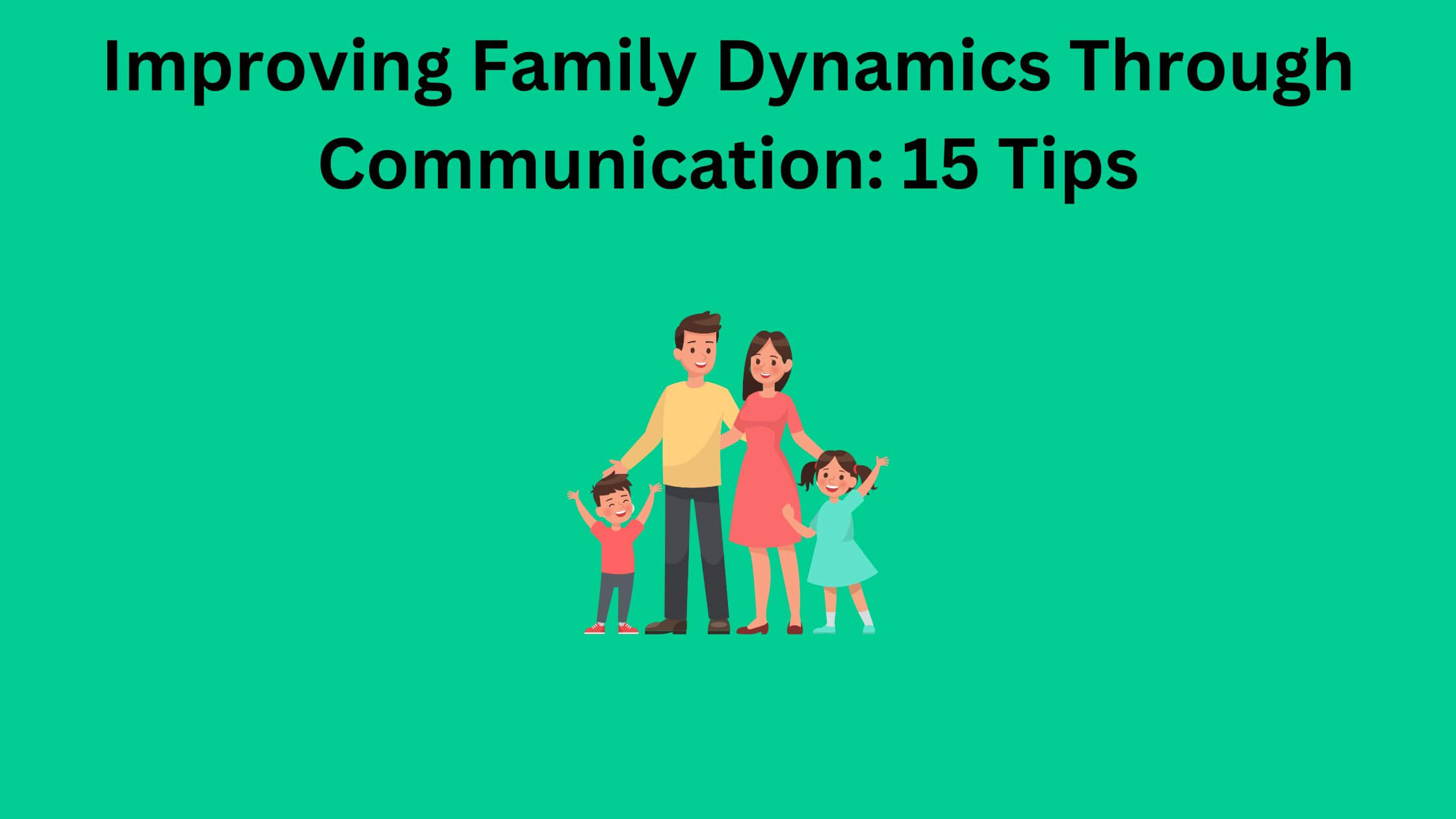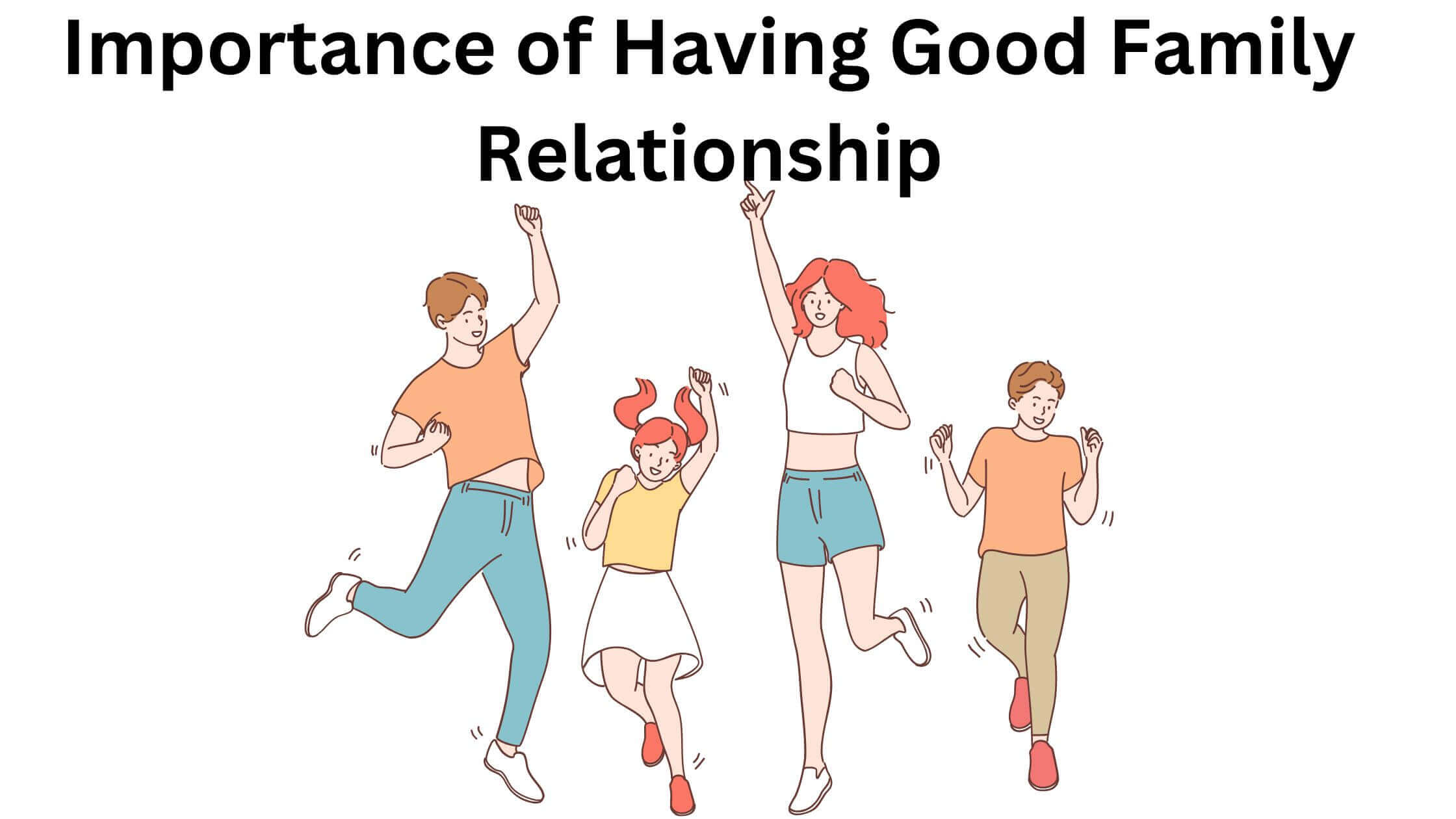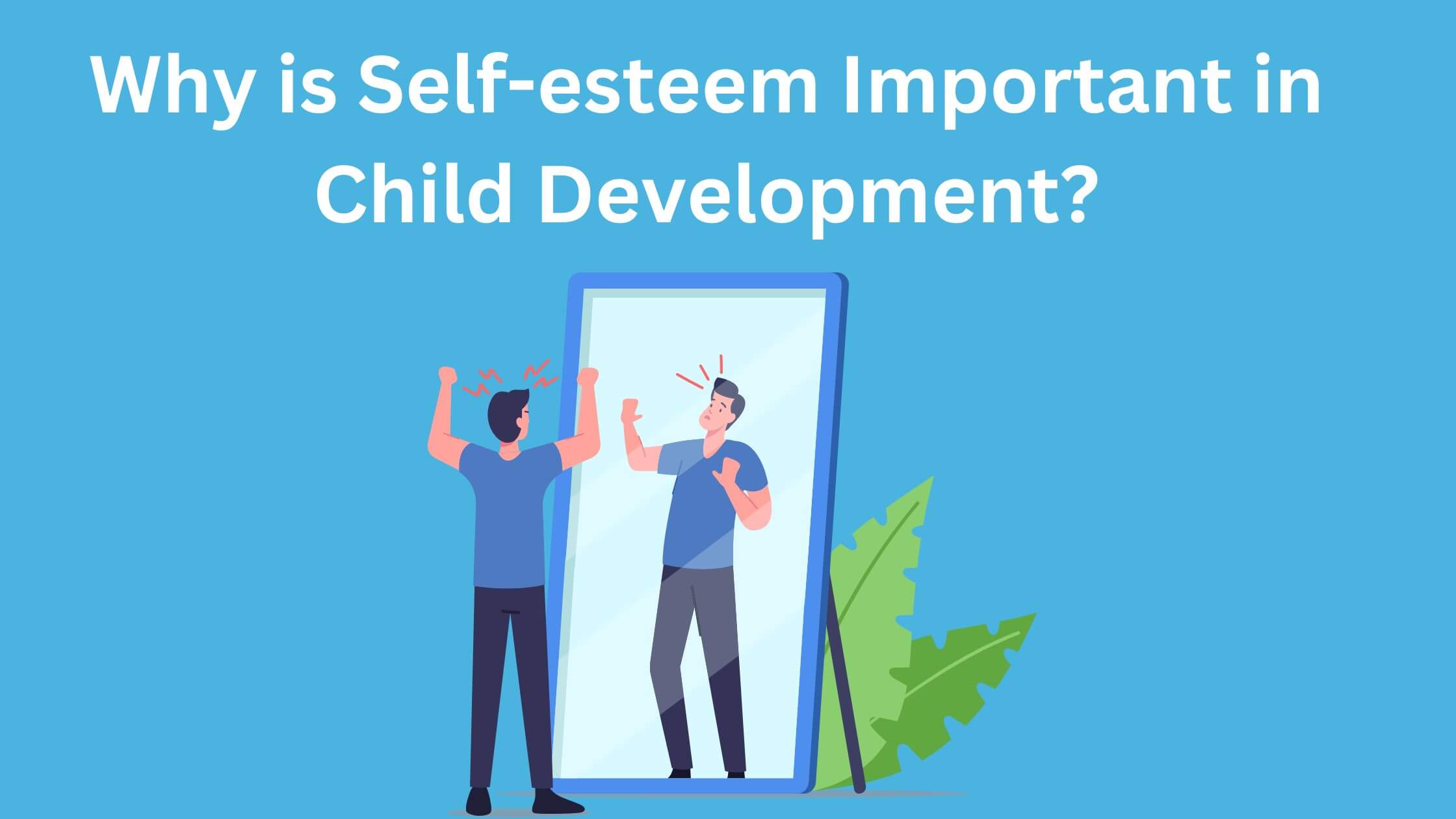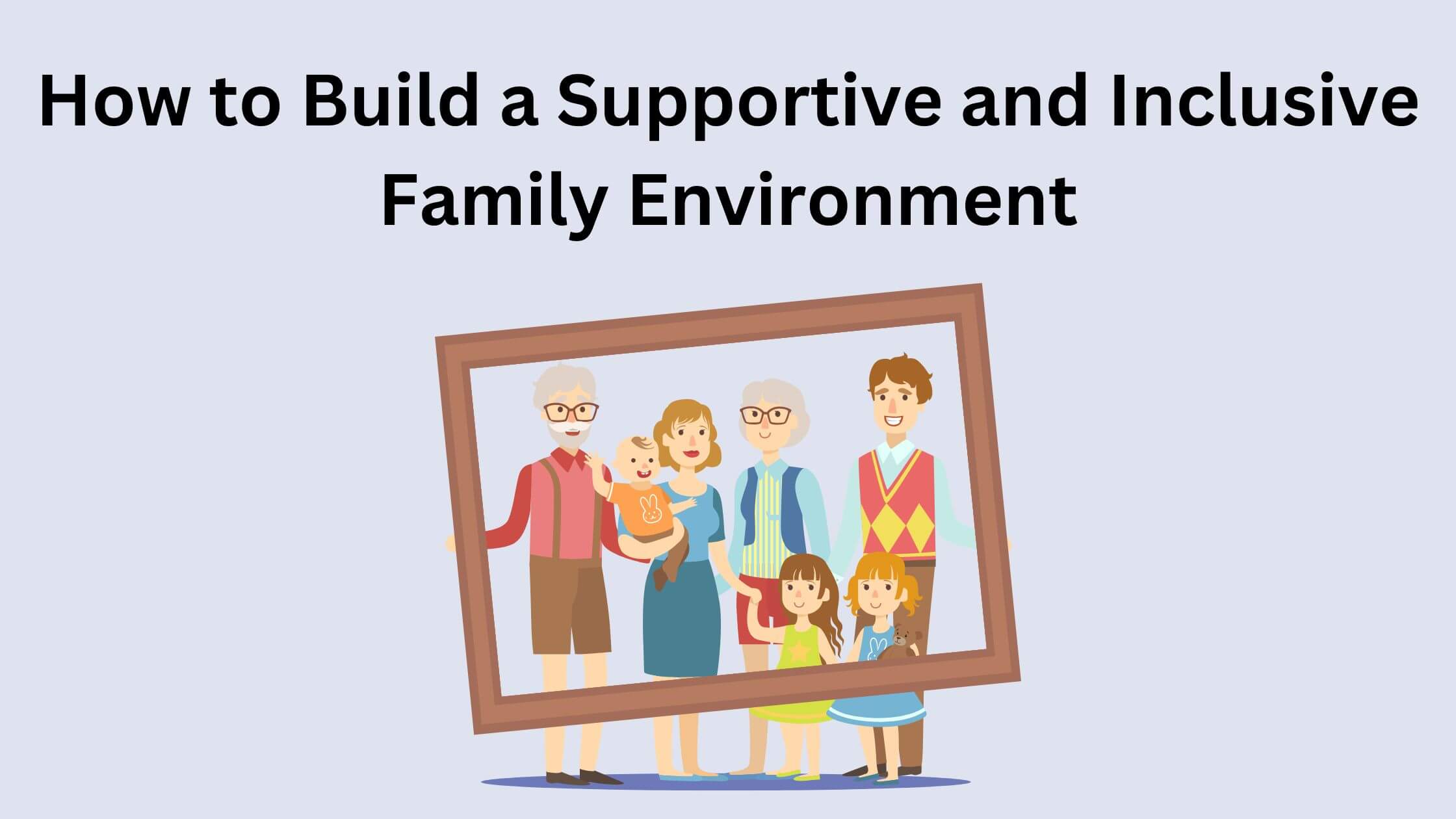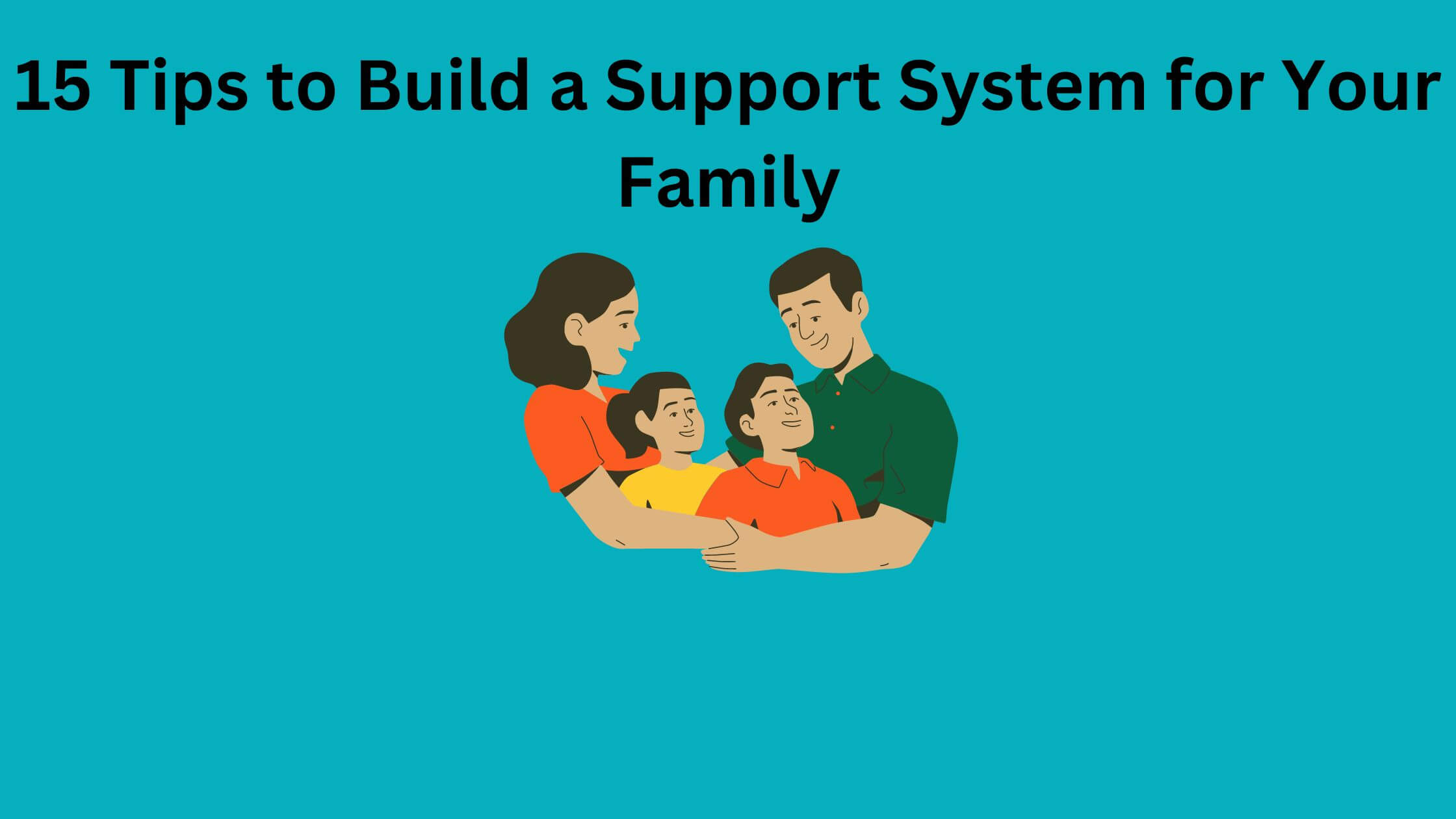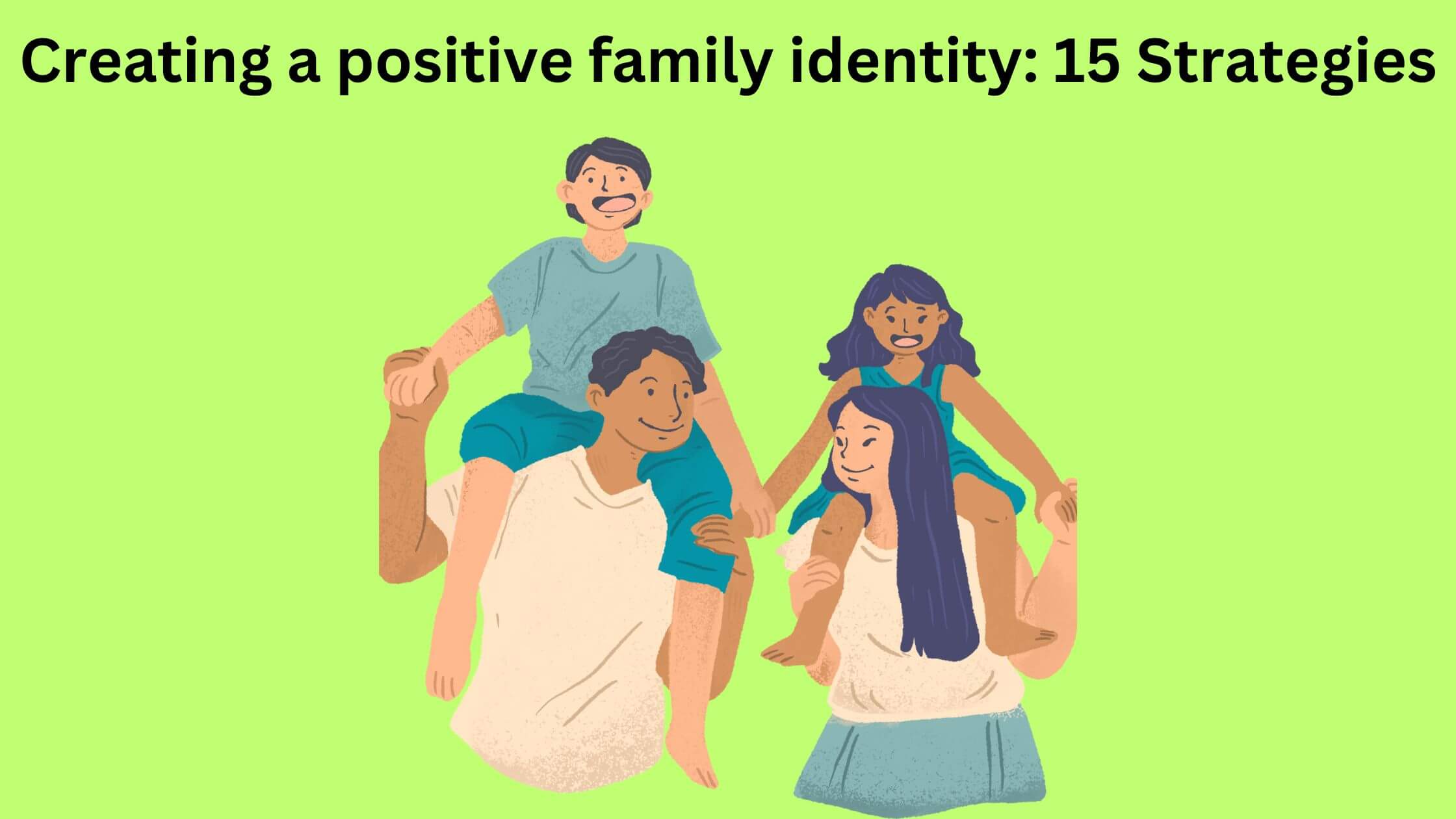Effective communication is the cornerstone of any healthy and thriving family. It is through open and honest dialogue that family members can truly understand each other, resolve conflicts, and build strong relationships. However, achieving this level of communication can be challenging, especially in today’s fast-paced and technology-driven world.
That is why in this guide, we will explore 15 valuable tips to improve family dynamics through effective communication. By implementing these strategies, you can create a harmonious and supportive environment where every family member feels heard, understood, and valued.
So, let us embark on this journey towards stronger family connections and discover the transformative power of communication.
Key Takeaways
- Effective communication in families builds strong relationships and resolves conflicts.
- Active listening techniques, such as paying attention to nonverbal cues and expressing emotions, can improve family communication.
- Setting clear boundaries and expectations within the family helps foster a supportive and harmonious environment.
- Building trust through open and honest conversations, where thoughts and feelings are expressed without fear of judgment, is crucial for healthier family dynamics.
The Importance of Effective Communication in Families
Effective communication is crucial in families because it helps build strong relationships and resolve conflicts. In today’s digital age, the impact of technology on family communication cannot be ignored. While it has made connecting with loved ones easier, it has also created barriers and distractions. It is important to find a balance between using technology to stay connected and being present in the moment with your family.
One way to improve communication in your family is by practicing emotional self-awareness techniques. This involves recognizing and understanding your own emotions as well as those of your family members. By being aware of your emotions, you can communicate more effectively and empathetically. This means actively listening, showing empathy, and responding with kindness and understanding.
Another important aspect of effective communication in families is setting aside dedicated time for open and honest conversations. This means creating a safe and non-judgmental space where everyone feels comfortable expressing their thoughts and feelings. It also means being willing to listen without interrupting or jumping to conclusions.
Active Listening Techniques for Better Family Communication
When it comes to effective communication in families, nonverbal cues play a crucial role. Paying attention to these cues can help you understand the emotions and intentions behind the words being spoken.
Additionally, empathy in listening is essential for fostering healthy relationships within your family. By truly listening and understanding others’ perspectives, you can create a supportive and harmonious environment for everyone involved.
Nonverbal Cues Importance
Pay attention to your nonverbal cues when communicating with your family members; they can speak louder than words. Body language and nonverbal communication play a crucial role in effective family dynamics. Here are three key reasons why paying attention to your nonverbal cues is important:
- Expressing emotions: Your facial expressions, gestures, and posture can convey your true emotions, even when you try to hide them with words. Your family members can pick up on these cues and understand your feelings better, fostering empathy and deeper connections.
- Building trust: Nonverbal cues, such as maintaining eye contact, nodding, and using open body language, can create a sense of trust and openness in your family interactions. This can encourage honest and transparent communication, leading to stronger relationships.
- Resolving conflicts: Nonverbal cues can help de-escalate conflicts by showing your willingness to listen and understand. Displaying calmness, using a soft tone of voice, and offering a reassuring touch can diffuse tension and promote peaceful resolutions.
Empathy in Listening
Listening with empathy can foster deeper connections and understanding within your family. When conflicts arise, it is important to approach them with empathy. Try to put yourself in the other person’s shoes and understand their perspective.
Instead of focusing on being right, focus on understanding and validating their feelings. Show that you care by actively listening and acknowledging their emotions. Empathy in conflicts can help deescalate tense situations and promote resolution.
In parenting, empathy plays a crucial role in building strong relationships with your children. When your child is upset or struggling, take the time to listen and understand their feelings. This will make them feel heard and supported, strengthening the bond between you.
Setting Clear Boundaries and Expectations Within the Family
To effectively improve family dynamics, it’s important to establish clear boundaries and expectations within the family. By setting these boundaries and clarifying expectations, you create a sense of structure and understanding that can lead to healthier communication and stronger relationships.
Here are three key steps to help you in this process:
- Communicate openly: Start by having an open and honest conversation with your family members about the need for boundaries and expectations. Explain why they are important and how they can benefit everyone in the family. Encourage everyone to express their thoughts and concerns.
- Define your boundaries: Take the time to clearly define your personal boundaries and discuss them with your family. This includes setting limits on personal space, privacy, and acceptable behavior. Make sure to listen to your family members’ boundaries and respect them as well.
- Set realistic expectations: It’s important to have realistic expectations for yourself and others in the family. Clearly communicate what you expect from each other in terms of responsibilities, chores, and behavior. Be willing to compromise and find a balance that works for everyone.
Building Trust Through Open and Honest Conversations
When building trust within your family, it’s crucial to have open and honest conversations where you can express your thoughts and feelings without fear of judgment. Building trust is the foundation of a strong and healthy family dynamic. Honest conversations create an environment where everyone feels safe and valued, allowing for deeper connections to form.
By actively listening to each other and validating one another’s experiences, you can foster a sense of trust and understanding within your family.
In these conversations, it is important to be genuine and authentic. Share your thoughts and feelings openly, and encourage your family members to do the same. Be mindful of your tone and body language, as they can convey your sincerity and willingness to listen. Create a space where everyone has an equal opportunity to speak without interruption or criticism.
Building trust through honest conversations requires vulnerability. It means being willing to share your fears, insecurities, and mistakes. It also means being open to receiving feedback and offering support to your family members when they need it. Trust is not built overnight; it takes time, effort, and consistency.
Conflict Resolution Strategies for Healthier Family Dynamics
When it comes to improving your family dynamics, two key points to consider are active listening techniques and boundary-setting.
Active listening techniques involve fully engaging in the conversation by giving your full attention, maintaining eye contact, and responding empathetically.
Active Listening Techniques
You can enhance your family dynamics by practicing active listening techniques. By actively engaging in effective listening, you can create a stronger connection with your loved ones and foster a supportive and loving environment at home.
Here are three key ways to improve your active listening skills:
- Pay attention to nonverbal communication: Observe the body language, facial expressions, and tone of voice of your family members. These nonverbal cues can provide valuable insights into their emotions and needs.
- Show empathy and understanding: Put yourself in their shoes and try to understand their perspective. Reflect on their words and emotions to demonstrate that you genuinely care about their feelings.
- Avoid interrupting and truly listen: Give your undivided attention, maintain eye contact, and refrain from interrupting when someone is speaking. This shows respect and allows for a more meaningful conversation.
Boundary-Setting for Healthier Dynamics
Setting clear boundaries is essential for cultivating healthier family dynamics and promoting a sense of respect and understanding among all members. By establishing healthy limits, you create a foundation for open and honest communication, ensuring that everyone’s needs are acknowledged and respected.
One effective boundary-setting technique is to clearly communicate your expectations and limits to your family members. Let them know what behaviors are acceptable and what are not. Use ‘I’ statements to express your feelings and needs, allowing others to understand your perspective without feeling attacked.
It’s also important to listen to others’ boundaries and respect them. Encourage an open dialogue where everyone can express their needs and concerns without judgment.
The Role of Empathy in Improving Family Communication
Empathy plays a crucial role in improving family communication. When conflicts arise within your family, it is important to approach them with empathy. By putting yourself in the shoes of your family members, you can better understand their perspectives and emotions, which will help you navigate through disagreements more effectively.
Here are three ways empathy can enhance your family communication:
- Overcoming Communication Barriers: Empathy allows you to break down the walls that hinder effective communication. By actively listening and trying to understand the underlying emotions, you can create a safe space for open and honest dialogue, fostering better understanding and connection.
- Resolving Conflict: When conflict arises, empathy helps you approach the situation with compassion and understanding. By acknowledging and validating the emotions of your family members, you can find common ground and work towards a resolution that satisfies everyone involved.
- Building Trust and Connection: Empathy strengthens the bond within your family by showing that you genuinely care about each other’s feelings and experiences. By being empathetic, you create an atmosphere of trust, which encourages open communication and promotes healthier relationships.
Non-verbal Communication Cues to Pay Attention to Family Interactions
Non-verbal cues, such as body language and facial expressions, play a significant role in family interactions. When it comes to serving others within your family, paying attention to these cues can help you better understand and connect with your loved ones.
Non-verbal cues are powerful indicators of emotions, thoughts, and intentions, often conveying more than words alone. So, how can you recognize and interpret these cues to improve your family dynamics?
Firstly, observe body language. Notice how your family members hold themselves, their posture, and their gestures. Are they open and relaxed, or closed off and tense? These cues can give you insight into their comfort level and emotional state. Additionally, pay attention to facial expressions. A smile can indicate happiness or approval, while a furrowed brow may signify concern or confusion. By being aware of these non-verbal cues, you can better gauge how your family members are feeling and respond accordingly.
Creating a Safe and Supportive Environment for Open Dialogue
If you want to create a safe and supportive environment for open dialogue within your family, there are a few key points you should consider.
First, trust-building activities can help strengthen the bond between family members and foster a sense of trust and openness.
Second, active listening techniques, such as maintaining eye contact and paraphrasing what the speaker is saying, can show that you are fully engaged in the conversation and value the speaker’s perspective.
Lastly, by actively practicing these techniques, you can encourage a culture of open and honest communication within your family.
Trust-Building Activities
To build trust in your family, try engaging in activities that promote bonding and connection. These trust-building activities can help foster respect and strengthen the relationships within your family. Here are three suggestions to get you started:
- Family Game Night: Set aside a specific night each week to gather as a family and play games together. This not only encourages communication and teamwork but also creates a fun and relaxed environment where everyone can let their guard down and build trust.
- Volunteer Together: Find a local charity or community organization that aligns with your family’s values and spend time volunteering together. Working towards a common goal and helping others can bring your family closer and build trust through shared experiences.
- Family Mealtime: Make it a priority to have regular family meals where everyone sits down together. This dedicated time allows for open and honest conversations, promotes active listening, and reinforces the sense of belonging and trust within the family unit.
Active Listening Techniques
When having conversations with your family, make sure to fully engage by actively listening and responding thoughtfully. Active listening involves not just hearing the words being spoken, but also paying attention to nonverbal cues and showing emotional self-awareness. By doing so, you demonstrate your genuine interest and concern for what your family members have to say. Nonverbal communication, such as maintaining eye contact, nodding, and using appropriate facial expressions, can convey your attentiveness and empathy. Emotional self-awareness allows you to recognize and understand your own emotions, as well as the emotions of others, which can help you respond in a more compassionate and supportive manner. By actively listening and being emotionally present, you can strengthen your family bonds and foster a deeper understanding and connection with your loved ones.
| Active Listening Techniques | Benefits |
|---|---|
| Maintain eye contact | Shows your attentiveness and interest |
| Nod and use appropriate facial expressions | Conveys understanding and empathy |
| Reflect back and paraphrase | Demonstrates that you are actively processing what was said |
| Ask open-ended questions | Encourages further conversation and deeper understanding |
| Validate emotions | Shows empathy and support |
The Impact of Technology on Family Communication and How to Navigate It
Navigating the impact of technology on family communication can be challenging, but there are ways to foster healthy relationships in the digital age. As technology continues to advance, it has undoubtedly influenced how families interact with one another. However, with mindful management of screen time and intentional efforts, you can maintain strong family relationships.
Here are three strategies to help you manage the impact of technology on your family relationships:
- Set boundaries: Establish clear guidelines for screen time in your household. Encourage designated device-free times, such as during meals or before bedtime, to promote quality face-to-face interactions.
- Prioritize communication: Make an effort to have open and honest conversations about the impact of technology on your family relationships. Discuss concerns and brainstorm solutions together. By involving everyone in the conversation, you can create a shared understanding and commitment to healthy communication practices.
- Focus on quality time: Balance screen time with meaningful activities that promote connection and bonding. Plan regular family outings, game nights, or even simple conversations over a cup of tea. These activities will help strengthen your familial bonds and create lasting memories.
Teaching Children Effective Communication Skills From a Young Age
Teaching your children effective communication skills from a young age is crucial for their personal and social development. By instilling these skills early on, you are setting them up for success in all areas of their lives. One important aspect of effective communication is teaching empathy. Empathy is the ability to understand and share the feelings of others. By teaching your children empathy, you are helping them to develop a deep understanding and compassion for others, which in turn fosters trust in their relationships.
To help you in teaching your children effective communication skills, here are some tips:
| Tip | Description |
|---|---|
| 1. | Model good communication yourself. |
| 2. | Encourage active listening. |
| 3. | Teach them to express themselves clearly. |
| 4. | Use positive reinforcement. |
| 5. | Practice problem-solving skills together. |
Expressing Emotions and Feelings in a Constructive Manner
In order to effectively express your emotions and feelings in a constructive manner, there are two key techniques to focus on: emotional self-awareness and active listening.
Emotional self-awareness techniques involve recognizing and understanding your own emotions, allowing you to communicate them more clearly to others.
Active listening exercises, on the other hand, help you to be fully present and engaged when someone else is expressing their emotions, fostering better understanding and communication.
Emotional Self-Awareness Techniques
Take a moment to reflect on your emotions and try using techniques that can help you become more self-aware. Emotional intelligence is crucial for maintaining healthy relationships and serving others effectively.
Here are three self-reflection techniques to enhance your emotional self-awareness:
- Mindfulness: Practice being present in the moment and observing your thoughts and feelings without judgment. Take note of any patterns or triggers that may be influencing your emotions.
- Journaling: Write down your thoughts and emotions in a journal regularly. This helps you process your feelings and gain a deeper understanding of yourself.
- Seek feedback: Ask trusted friends or family members for honest feedback on how you handle emotions. Their perspectives can provide valuable insights and help you identify areas for growth.
Active Listening Exercises
Active listening exercises can greatly enhance your ability to understand and connect with others on a deeper level. By actively engaging in these exercises, you can improve your listening skills and become more effective in your relationships. Here are some active listening exercises that can help you serve others better:
| Exercise | Description | Purpose |
|---|---|---|
| Reflective Listening | Repeat or paraphrase what the speaker said to show understanding. | To demonstrate empathy and ensure accurate comprehension. |
| Non-Verbal Listening | Pay attention to the speaker’s body language, facial expressions, and tone of voice. | To understand the speaker’s emotions and unspoken messages. |
| Summarizing | Recap the main points of the conversation to check for understanding. | To reinforce key information and clarify any misunderstandings. |
| Asking Open-Ended Questions | Encourage the speaker to share more details and express their thoughts. | To promote deeper conversation and show genuine interest. |
| Mindful Listening | Focus your attention fully on the speaker without judgment or distraction. | To cultivate presence and increase understanding. |
Fostering Respect and Understanding in Family Discussions
Creating an environment of respect and understanding is essential for productive family discussions. When trust is built and understanding is fostered, family members feel safe expressing their thoughts and emotions.
To create such an environment, consider the following:
- Active Listening: Show genuine interest in what others have to say. Give them your full attention, maintain eye contact, and avoid interrupting. Validate their feelings and avoid making assumptions.
- Empathy: Put yourself in their shoes and try to understand their perspective. Acknowledge their emotions and validate their experiences. This will foster a sense of understanding and connection.
- Open-Mindedness: Be willing to consider different viewpoints and be open to new ideas. Avoid being judgmental and instead seek to find common ground. Embrace diversity and encourage everyone to share their thoughts and opinions.
By implementing these practices, you can create an atmosphere of respect and understanding within your family. This will not only lead to more productive discussions but also strengthen your relationships and create a supportive environment where everyone feels heard and valued.
Strategies for Dealing With Difficult Family Conversations
Dealing with difficult family conversations can be challenging, but it’s important to approach them with empathy and open-mindedness. When it comes to managing conflict and difficult emotions within your family, there are strategies that can help you navigate these conversations with grace and understanding.
Firstly, it’s crucial to listen actively and attentively to what the other person is saying. This demonstrates respect and shows that you value their perspective. By doing so, you create a safe space for open dialogue and encourage a more productive conversation.
Additionally, it’s important to manage your own emotions during these discussions. Take deep breaths and remind yourself to stay calm. Reacting impulsively or defensively can escalate the situation and hinder resolution.
Another helpful strategy is to find common ground. Look for shared values or goals that you can build upon. By focusing on areas of agreement, you can create a foundation for finding solutions and working through conflicts.
The Power of Forgiveness and Reconciliation in Family Relationships
Forgiveness and reconciliation can be transformative in healing and strengthening family relationships. When conflicts arise and trust is broken, the power of forgiveness can bring about healing and restore harmony within your family.
Here are three ways forgiveness and reconciliation can help in rebuilding trust and fostering a loving environment:
- Letting go of grudges: Holding onto grudges only perpetuates negativity and prevents true healing. By actively choosing to forgive, you release the burden of resentment and create space for growth and understanding.
- Opening lines of communication: Forgiveness opens the door to honest and open communication. It allows family members to express their feelings and concerns without fear of judgment or rejection. Through compassionate dialogue, misunderstandings can be resolved, and deeper connections can be forged.
- Embracing empathy and understanding: Forgiveness requires empathy and understanding towards the person who caused the harm. By putting yourself in their shoes, you can gain insight into their motivations and struggles, fostering compassion and empathy.
Continuously Working on Communication Skills to Strengthen Family Dynamics
To strengthen your family dynamics, remember the importance of consistently working on your communication skills. Improving listening skills and practicing effective conflict resolution are crucial for maintaining healthy relationships within your family.
By actively listening to one another, you demonstrate your respect and empathy towards each family member, fostering a sense of understanding and connection. Take the time to truly hear what they have to say, without interruption or judgment. This will create an environment where everyone feels valued and heard.
Additionally, developing effective conflict resolution skills is vital for maintaining harmonious family dynamics. Conflict is inevitable in any relationship, but how you handle it can make all the difference. Instead of resorting to yelling or shutting down, strive for open and respectful communication. Encourage everyone to express their thoughts and feelings honestly, while also actively listening to the other person’s perspective. This will allow you to find common ground and work towards a resolution that satisfies everyone involved.
Conclusion
As you reflect on the power of communication in your family, you realize that it holds the key to a harmonious and loving relationship.
By actively listening, setting clear boundaries, and resolving conflicts with understanding, you have the ability to transform your family dynamics.
Through forgiveness and continuous effort to improve communication skills, you can create a safe and nurturing environment for everyone.
Remember, it’s never too late to make a positive change.
Embrace the coincidence of opportunity and take the first step towards a stronger and happier family bond.

